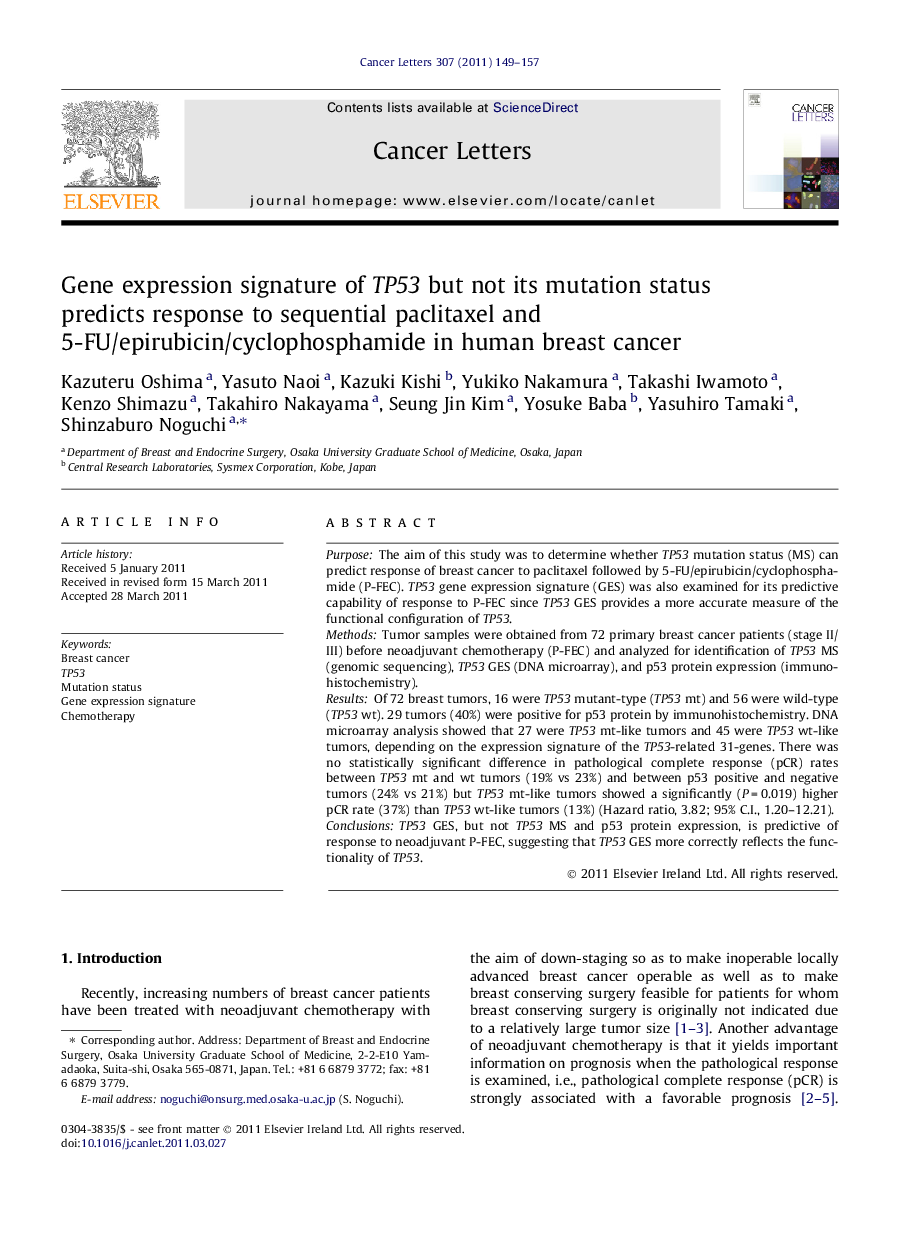| کد مقاله | کد نشریه | سال انتشار | مقاله انگلیسی | نسخه تمام متن |
|---|---|---|---|---|
| 2113639 | 1084484 | 2011 | 9 صفحه PDF | دانلود رایگان |

PurposeThe aim of this study was to determine whether TP53 mutation status (MS) can predict response of breast cancer to paclitaxel followed by 5-FU/epirubicin/cyclophosphamide (P-FEC). TP53 gene expression signature (GES) was also examined for its predictive capability of response to P-FEC since TP53 GES provides a more accurate measure of the functional configuration of TP53.MethodsTumor samples were obtained from 72 primary breast cancer patients (stage II/III) before neoadjuvant chemotherapy (P-FEC) and analyzed for identification of TP53 MS (genomic sequencing), TP53 GES (DNA microarray), and p53 protein expression (immunohistochemistry).ResultsOf 72 breast tumors, 16 were TP53 mutant-type (TP53 mt) and 56 were wild-type (TP53 wt). 29 tumors (40%) were positive for p53 protein by immunohistochemistry. DNA microarray analysis showed that 27 were TP53 mt-like tumors and 45 were TP53 wt-like tumors, depending on the expression signature of the TP53-related 31-genes. There was no statistically significant difference in pathological complete response (pCR) rates between TP53 mt and wt tumors (19% vs 23%) and between p53 positive and negative tumors (24% vs 21%) but TP53 mt-like tumors showed a significantly (P = 0.019) higher pCR rate (37%) than TP53 wt-like tumors (13%) (Hazard ratio, 3.82; 95% C.I., 1.20–12.21).ConclusionsTP53 GES, but not TP53 MS and p53 protein expression, is predictive of response to neoadjuvant P-FEC, suggesting that TP53 GES more correctly reflects the functionality of TP53.
► Correlation of TP53 mutation or p53 expression with chemosensitivity was studied in breast cancer.
► Correlation of TP53 gene expression signature (GES) with chemosensitivity was also studied.
► TP53 GES, but not TP53 mutation and p53 expression, was predictive of chemosensitivity.
Journal: Cancer Letters - Volume 307, Issue 2, 28 August 2011, Pages 149–157